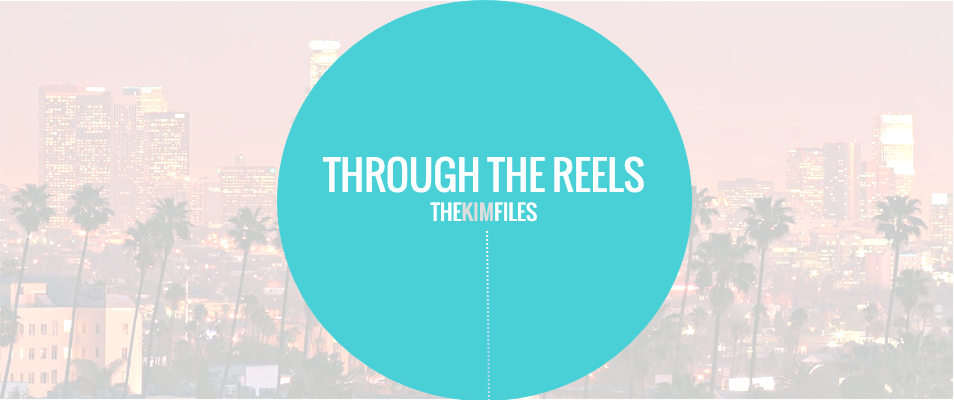 |
| Martin Sheen in Apocalypse Now (1979) |
The only thing more memorable than the experience of watching AFI's #30 film, Apocalypse Now, is director Francis Ford Coppola's nightmarish experience filming it; a 16-month shoot riddled with so many problems, they had enough footage to make a documentary almost as long as the movie itself (a doc that I, personally, find far more interesting). The drama of the film unwittingly pulls me in every time, but it's the reality of it that still makes me cringe. With its inspiration pulled from Joseph Conrad's novella and ivory trading metaphor, Heart of Darkness, our attention shifts from the Congo in Africa to the harrowing front lines of the Vietnam War, a far more culturally relevant location during the turbulent '70s. Coppola compounds the terror of the jungle with the horror of war to create a film that has no equal; as a result, it doesn't make it particularly easy to watch.
Pulled from a hazy, drugged stupor in his Ho Chi Minh City hotel room during the summer of 1970, Captain Benjamin Willard (Martin Sheen) is tasked with a top secret mission to locate a once-celebrated officer, Colonel Kurtz (Marlon Brando), who is believed to have gone rogue—and completely insane—after disappearing into the Vietnam jungle. With intel pointing him in one direction, upriver into enemy territory, Willard enlists the aide of a Navy patrol boat run by playful and oblivious kids to carry him deep into the wilderness—and as they encounter an endless stream of dangers and odd characters, Willard starts to question whether he's even on the right side of this fight.
The experience of watching this movie is like struggling to come up for fresh air and never being able to take that life-saving inhale. What begins in a dark, dank, sweaty hotel rooms ends in a dark, dank sweaty jungle, and the journey—the true point of the film—is riddled with terrors that simply steal your breath away. It's an exhausting mental strain, and Willard's willful detachment from his surroundings and the people helping him only exacerbates our stress level. It also successfully contributes to the admiration building up inside of him for Kurtz, despite knowing better.
Through Sheen's weighted narrations, we witness Willard's fascination and admiration grow through the papers of Kurtz' damp, crumbled dossier, and it does more than explain the glaze over his eyes. To Willard, Kurtz is the personification of the repugnant effect our being in this war at all has had on its people. Evil breeds evil, and no one is immune from its temptations, not even him.


It's not all dread and anxiety, though. On occasion, the characters find a way to have fun their fingers on their triggers. Watching Lieutenant Colonel Bill Kilgore's fleet of helicopters descend over the mouth of the river while Wagner plays is a thing of beauty. Robert Duvall is brilliant, I wish the entire film was about him and his merry band of men. But what a fantastic addition to the supporting cast, a C.O. obsessed with finding the perfect spot on the beach to surf, unphased by surrounding gunfire and falling mortar shells. "I love the smell of napalm in the morning." Goddamn, what a great sequence of cinema, the perfect representation of the delusion of the American forces, and it remains the highlight of the film. He's there and then gone, and off we go to more serious, less enjoyable endeavors.
Because then you're faced with scenes that go on way too long... ones that descend into deranged savagery, often dispensing with the details that remind us we're human. You love animals? Great. They save a puppy. But then they lose it in a gun fight. How? We don't know, it falls overboard or something. Ah! What? And in those 30 minutes between rescue and death, you'll never find a moment's peace. Coppola found ways to intersperse vignettes of strange interactions, ones where the tensions intensify to a tipping point before exploding. And it happens again, and again, and again, all shrouded in a magnificent score (by Coppola and his father, Carmine) and soundtrack that keep everything eerily cohesive.
As a viewer, there is no respite. Sheen is our eyes and ears (not to mention our voice), but even he abandons us as he descends into his own type of madness. For him detachment is easy, but for us, it's impossible. Watching Apocalypse Now will have a profound effect on every viewer—it's simply a matter of whether or not the effects are something you can stomach. Me? I can't do it, though I have forced myself to several times. I find such beauty in Coppola's vision, and Joseph Conrad's incorporated allegories, but enduring it is another thing entirely. A more modern example of this inability to reconcile the respect for something and simultaneous hatred for it is how I feel about No Country for Old Men. It's wonderful and impressive, but I can't stand to watch it. And at the same time, I'd encourage everyone to see it, at least once.

Many films on this AFI Top 100 journey are as famous for what happened off screen as the scenes taking place on... But this one goes above and beyond in its execution and legendary rumors (like Dennis Hopper getting a then-14-year-old Lawrence Fishburne hooked on heroine). Apocalypse Now packs some big punches, and it earns the right to knock you down. Every character looks exhausted and angry and hungry and high, and that's because all of the actors actually were. The endless build to Brando's reveal as Kurtz is earned, too, and Brando makes it worth our while.
This is a disgusting, upsetting, and impressive movie. If you have never seen it, you should—but I've warned you.
Rating: ★★★½ / 5 stars
Check back next time for #29 on the list, Double Indemnity — or better yet, have your own viewing party and watch along with us!

No comments:
Post a Comment